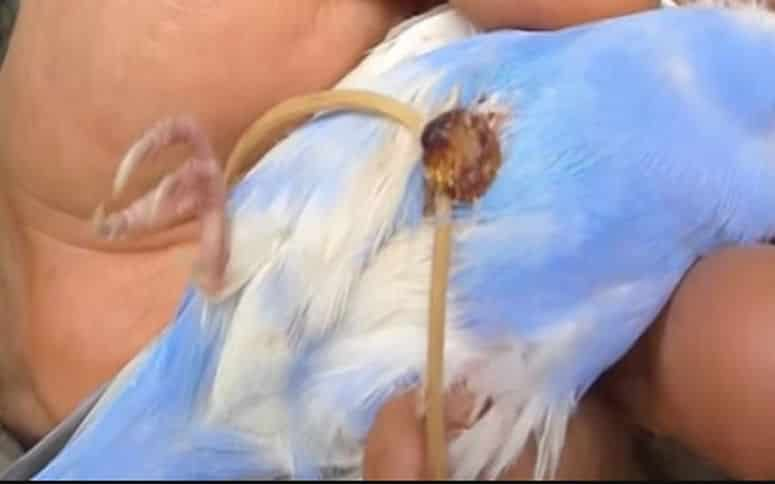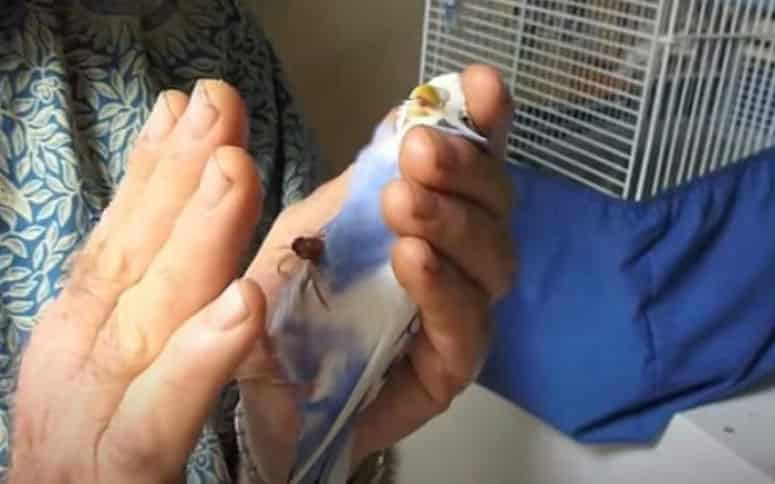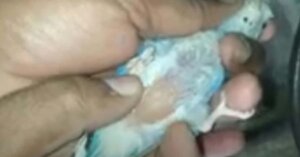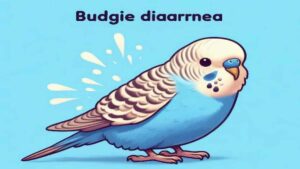How Long Can a Budgie Live With a Tumor?
Generally, budgies can live from 6 months to 1 year without surgery. However, the survival time will depend on the type, location, and stage of the tumor.
My budgie had a skin tumor once. I learned a lot after talking to the vet and diving into research. Here’s the gist:
Tumors in budgies can be not-so-bad (benign) or really-bad (malignant). They can appear anywhere and make life hard for them.
The good news is that we can reduce these risks. Proper food, clean living, and vet checks help a lot. If your budgie gets a tumor, there are treatments like surgery or therapy, depending on the situation.
My vet and I chose the best route for my budgie. It was tough, but it showed that early action is key. I am sharing this with you. I hope this helps you keep your budgie happy and healthy.
Types Of Budgie Tumors

Budgies, like other pets, can develop tumors. Understanding the types of tumors is crucial for their care. Tumors can be classified as benign or malignant. They can appear in various locations on a budgie’s body. Knowing the differences and common sites helps in managing their health effectively.
Benign Vs Malignant Budgies Tumor
Budgie tumors can be either benign or malignant. Benign tumors are non-cancerous and grow slowly. They do not spread to other body parts and are easier to treat. Surgery can often remove them altogether.
Malignant tumors are cancerous, overgrow, and can spread to other organs. They are more severe and require more intensive treatment. Early detection is crucial for better outcomes.
Common Budgie Tumor Locations
Tumors can appear in various locations on a budgie’s body. Here are some common sites:
- Skin: Skin tumors are visible lumps or bumps. They can be felt under the feathers.
- Internal Organs: Tumors can form in the liver, kidneys, or other organs. These are harder to detect without medical imaging.
- Beak and Feet: Tumors can also appear on the beak or feet. These may affect a budgie’s ability to eat or perch.
Knowing these common locations helps in early detection. Regular check-ups with a vet are essential for budgie health.
What Causes Budgie Tumors?
I talked with my veterinarian. His opinion: veterinary experts often point out that the precise causes of tumors in budgies remain somewhat of a mystery. However, they acknowledge a range of factors that may contribute to the development of these conditions.
According to vets, genetic predisposition, exposure to environmental toxins, viral infections, and hormonal imbalances are believed to play significant roles. They also note that the risk of developing tumours increases with the bird’s age.
While it’s not always possible to prevent the development of tumors, vets recommend that providing a healthy and enriching environment for budgies can help minimize the risks. Ensuring a clean habitat, a nutritious diet, and a stress-free living condition are essential steps in reducing their vulnerability to tumors.
Identifying a Tumor in Budgies

Budgies are prone to developing tumors, and it is crucial to identify them early to ensure that they receive the necessary medical attention.
Here are some signs to look out for when identifying a tumor in budgies:
- Lumps and bumps: Tumors often present as lumps or bumps on the budgie’s body. These can be felt by gently running your fingers over the bird’s body. However, not all lumps and bumps are tumors, so it is essential to seek veterinary advice to confirm the diagnosis.
- Changes in behavior: A budgie with a tumor may display changes in behavior, such as lethargy or a lack of appetite. This could be due to the discomfort caused by the tumor or the bird’s general ill health.
- Changes in appearance: A tumor may cause changes in the bird’s appearance, such as changes in feather color or texture. The bird may also appear to be in pain or discomfort.
- Abnormal growths: Tumors can grow in various parts of the bird’s body, including the eyes, beak, or feet. A veterinarian should check for any abnormal growth in these areas.
Moreover, some common symptoms of a budgie with a tumor include:
- Unusual behaviors, such as excessive sleeping, decreased activity levels, or a lack of interest in playing
- Changes in appetite, such as reduced food intake or complete loss of appetite
- Respiratory difficulties, including wheezing, coughing, or labored breathing
- Unexplained weight loss or abnormal weight gain can be a red flag for a budgie tumor.
How To Perform A Budgie Health Check?
Performing a regular health check on your budgie can significantly aid in the early detection of tumors.
Here’s how you can perform a budgie health check:
- Examine the budgie’s body: Take a close look at your budgie’s body, paying attention to any physical abnormalities or unusual lumps.
- Check their beak and mouth: Inspect their beak and mouth for any signs of discoloration, growths, or abnormalities.
- Observe their breathing: Listen for abnormal sounds such as wheezing or labored breathing.
- Monitor their droppings: Check for any changes in the color, consistency, or frequency of their droppings.
- Pay attention to their appetite and water intake: Notice any changes in their food and water consumption.
- Observe their behavior: Monitor their behavior for any sudden changes in activity levels, social interactions, or vocalizations.
In summary, detecting a tumor in your budgie can be challenging. However, by closely observing your budgie’s behavior, weight fluctuations, and physical abnormalities and regularly performing health checks, you can increase the chances of early detection.
Timely intervention and appropriate veterinary care are vital for ensuring the well-being and longevity of your budgie.
How Long Can a Budgie Live With a Tumor?
Like all animals, Budgies are susceptible to various health problems, including tumors. A tumor is an abnormal growth of cells that can develop in any part of the body.
While some tumors are benign and not life-threatening, others can be malignant and lead to serious health complications. One common question budgie owners ask is, “How long can a budgie live with a tumor?”
The answer to this question depends on several factors, including the type of tumor, its location, and the bird’s overall health.
However, it is essential to understand these factors to provide the best care possible for your feathered friend. Let’s check out the factors.
1. Type of Tumor
The type of tumor is a crucial factor in determining a budgie’s life expectancy. Benign tumors are less harmful and pose a lower risk to the bird’s life.
A budgie with a benign tumor can live for up to 6-24 months without surgical removal. On the other hand, malignant tumors will keep spreading without surgical removal and can be life-threatening.
2. Budgie’s Age
Another factor that influences a budgie’s life expectancy with a tumor is its age. Older budgies are more susceptible to developing tumors than younger ones. As budgies age, their immune systems weaken, making it harder for them to fight off diseases.
Therefore, an older budgie with a tumor may have a shorter life expectancy than a younger budgie with the same type of tumor.
3. Early Detection And Timely Intervention
Budgies that have tumors detected early have a better chance of longer survival times. Early detection allows for prompt veterinary intervention and appropriate treatment options.
Engaging in regular health check-ups for your budgie can help in the early identification of any abnormalities or growths, potentially extending their survival time.
4. Overall Health
The overall health of the budgie is a critical factor in determining its life expectancy with a tumor.
If a budgie already suffers from other health issues, such as respiratory problems, it may have a shorter life expectancy with a tumor.
A healthy budgie with a tumor can live a long, healthy life with proper care and treatment.
5. Response To Treatment
The budgie’s response to treatment is an important factor in determining its survival time.
Some tumors may respond well to treatment options such as surgery, radiation therapy, or medication, which can help slow down or even shrink the tumor.
Budgies showing positive responses to treatment have a higher chance of living longer, while those not may experience a shorter survival time.
Treatment Options For Budgies Tumors

When it comes to treating tumors in budgies, several options are available. Like:
1. Surgery
Surgery is often the preferred method for treating tumors in budgies. During the procedure, the tumor is removed from the bird’s body. So, this can be a highly effective treatment option, especially if the tumor is caught early.
However, surgery can be risky and unsuitable for all birds. In some cases, the tumor may be too large or located in a difficult-to-reach area, making surgery impossible.
2. Chemotherapy
Chemotherapy is another option for treating tumors in budgies. This involves administering drugs that target and destroy cancer cells in the body.
Chemotherapy can be effective, but it can also have serious side effects, including nausea, vomiting, and hair loss.
Additionally, chemotherapy may not be suitable for all birds, especially those with other health conditions.
3. Radiation Therapy
Radiation therapy is a less common treatment option for budgies with tumors. However, this involves using high-energy radiation to kill cancer cells in the body.
While radiation therapy can be effective, it can also have serious side effects, including skin irritation and fatigue.
Additionally, radiation therapy may not be suitable for all birds, especially those with other health conditions.
If you want to know more about How To Treat Tumors in Budgies, watch the below video.
Providing Comfort And Care For A Budgie With A Tumor
If a budgie is diagnosed with a tumor, it is essential to provide proper care to ensure the bird’s quality of life.
Here are some tips for caring for a budgie with a tumor:
1. Dietary Adjustments
A healthy diet is crucial to maintaining a budgie’s overall health, especially if it has a tumor. A balanced diet that includes a variety of fruits, vegetables, and high-quality seed and pellet blends is essential.
Consult a veterinarian or avian specialist to ensure the bird receives nutrients. Also, it may be necessary to adjust the bird’s diet based on the type and location of the tumor.
2. Environmental Changes
Budgies with tumors may require environmental changes to ensure their comfort and safety.
The bird’s cage should be spacious enough to accommodate its needs, and it should be placed in a quiet area away from loud noises and other stressors.
The cage should also be cleaned regularly to prevent the buildup of bacteria and other harmful substances.
3. Emotional Support
Budgies with tumors may experience pain, discomfort, and other symptoms that can affect their emotional well-being.
Providing emotional support is essential to ensure the bird’s quality of life. Spending time with the bird, talking to it, and providing toys and other forms of enrichment can help alleviate stress and promote a sense of well-being.
Frequently Asked Questions For How Long Can A Budgie Live With A Tumor
What To Do If Budgie Has A Tumor?
Are Tumors Common In Budgies?
How Do I Know If My Budgie Has Cancer?
How Long Can A Budgie Live With Testicular Cancer?
Wrap Up
To conclude, understanding the lifespan of a budgie with a tumor is crucial for providing appropriate care.
While tumors can significantly impact a budgie’s longevity, it’s important to note that the prognosis depends on various factors, such as the type and location of the tumor, as well as early detection and proper treatment.
Regular vet check-ups, a balanced diet, and a stress-free environment can contribute to a better quality of life for your budgie. Stay attentive and monitor any changes in behavior or physical appearance to ensure the best possible care for your feathered friend.







